What is Payroll? Definitive guide to Payroll in India
Payroll in India is a vital aspect of every organization’s operations. It includes calculating and allocating employee compensation, making deductions, and adhering to numerous labor laws and regulations. For both businesses and employees, effective payroll management is crucial to ensuring timely and accurate remuneration. This blog will cover the steps and stages of the Indian payroll process, as well as the prerequisites and challenges that companies must deal with.
What Is Payroll Management?

In the context of human resources (HR), payroll refers to the process of handling employee remuneration, including salaries, wages, bonuses, and deductions. Calculating employee earnings, deducting taxes, and making other deductions are all part of the process before paying employees their net pay. Maintaining employee happiness and organizational compliance are important goals of payroll, a key HR function.
The Indian Payroll Management Process
Due to the complicated tax and labor rules, managing payroll in India there can be challenging. The following are the essential stages and steps in the Indian payroll process:
1. Pre-Payroll:
- Collecting employee information including employee information, attendance records, and tax declarations.
- Verify the data’s accuracy and look for any discrepancies by cross-checking it.
2. Payroll Calculation:
- Calculate the gross salary for each employee by taking into consideration the basic salary, allowances, and incentives.
- Calculate deductions including income tax, provident fund, and professional tax.
- To calculate your net salary, subtract your deductions from your gross salary.
3. Statutory Compliance:
- TDS (Tax Deducted at Source): Deduct income tax in accordance with the statutory tax slabs and deposit the money with the government.
- PF (Provident Fund): Employer and employee contributions should be deducted from paychecks and deposited into the Employees’ Provident Fund Organization (EPFO).
- ESIC (Employee State Insurance Corporation): If applicable, deduct and deposit ESIC contributions.
- Professional Tax: Submit professional tax to the state government after deduction.
4. Salary Disbursement:
- Process salaries via bank transfers or cheques to make sure that employees are paid on time and accurately.
- Keep an account of all salary payments.
5. Compliance Reporting:
- Generate and submit a number of statutory reports, such as TDS returns, PF returns, and ESIC returns.
- Assure adherence to labor laws and regulations.
6. Employee Self-Service:
- Implement self-service portals so that employees may access pay slips, tax records, and update personal data.

What Information Is Not Necessary for Payroll Management?
Although a vast amount of employee information is needed to manage payroll, it is crucial to remember that sensitive personal data, such as a worker’s race, religion, sexual orientation, or medical history, should not be gathered or utilized for payroll. Organizations are required to abide by data privacy rules and protect employee confidentiality.
Needs and Challenges of Indian Payroll Management
Requirements:
- Accuracy: To prevent mistakes and irregularities in employee compensation, precise payroll calculations are crucial.
- Compliance: It’s essential to maintain compliance with the constantly evolving tax rules, reporting standards, and labor laws in order to stay out of trouble with the law.
- Efficiency: Simplifying payroll procedures frees up time and resources so that HR personnel can concentrate on strategic responsibilities.
- Employee Satisfaction: On-time and error-free Salary payments help keep employees happy and keep them on board.
Challenges:
- Complicated Regulations: Compliance might be difficult due to India’s labor and tax laws, which can be complex.
- Data Security: Protecting employee data and maintaining adherence to data privacy regulations are major concerns.
- Software Integration: Integrating accounting and other HR systems with payroll software can be challenging.
- Continuous Updates: It’s important to always monitor and adapt in order to keep up with changes in tax rates and regulations.
Payroll Management related FAQs
Frequently Asked Questions (FAQs) on Payroll in India
1. What is payroll in India?
In India, the term “payroll” refers to the process of calculating, managing, and disbursing employee salaries and benefits in accordance with statutory requirements, tax regulations, and labor laws.
2. What are the main elements of the Indian payroll system?
Basic salary, allowances, deductions (such as income tax and provident fund), bonuses, and any additional incentives offered to employees are the main components of payroll in India.
3. What is a Provident Fund (PF)?
Employers and employees both contribute a portion of the employee’s wage to the Provident Fund (PF), a social security programme. Employees receive financial stability and retirement benefits from the accumulated funds.
4. How is income tax deducted from employee salaries?
Employee salaries have income tax deducted at the source (TDS) in accordance with the applicable tax slab and exemptions. TDS must be deducted by employers and deposited with the government.

Additional Inquiries Regarding Payroll Management
1. What exactly is India’s Employee State Insurance Corporation (ESIC)?
Employees and their families can receive medical benefits and health insurance from ESIC, a social security organization. Certain qualifying employees and businesses are required to make ESIC contributions.
2. What is professional tax?
A state-level tax known as the “Professional Tax” is levied on people who earn salary or income from their profession, trade, or employment. Each state has a different tax rate.
3. What happens if you fail to comply with Payroll regulations?
Legal fines, disputes, and penalties may occur from non-compliance. Additionally, it can be detrimental to a company’s reputation and employee morale.
4. What are the benefits of using payroll software in India?
Payroll software automates a number of payroll processing procedures, resulting in a decrease in errors, time savings, and regulatory compliance. Employees can also access their pay-related information through self-service options.
Although these FAQs provide a general overview of payroll in India, it is essential for organizations and individuals to consult with legal and financial experts to navigate specific payroll-related issues and adhere to the latest regulations.
Meet Your Future Employees at IDJF! Click HERE to Register
Conclusion
Employees may often access their salary information through the company’s HR or payroll portal, which may contain information like pay slips, tax deductions, and additional benefits. The process of processing payroll in India is complex and necessitates accuracy, adherence to legal standards, and close attention to detail. Organizations can streamline their payroll procedures and guarantee that employees are paid correctly and in accordance with the requisite laws and cutting-edge payroll management software. Successful Payroll management in India depends on staying informed and flexible as regulations keep evolving.




